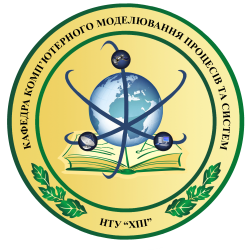Professor Uspenskyi leads scientific works with next topics: control of spaceships orientation and navigation systems creation.
Scientific group was created in 2000, when Chinese PhD student Lu Huei successfully finished his work, which developed Frolov’s scientific ideas. The work was supervised by professor Uspenskyi and was devoted to kinematic models of spherical types. These models are used for spaceship orientation change. It’s purpose is to optimize systems of gyrodynes which are unloaded by reactive engines. Also algorithms of optimal gyrodynes control were developed.
Scientific group have been actively working on inertial and integrated navigation systems research and development. Methodology foundation and algorithms of inertial and satellite data integration have been developed during this time. Also methods of inertial sensors calibration were developed. These methods include both direct calibration techniques and integration-based algorithms.
Currently scientific group consist of Aleksey Asiutin, Ivan Bagmut, Maria Nekrasova, Kirill Schastlivetz and Natalia Khatzko.
Ivan Bagmut has a PhD degree. His PhD work was devoted to increasing aircraft navigation system accuracy. The accuracy increase was reached by identification and algorithmic compensation inertial measurements errors. The work includes practical recommendations and was implemented in manufacturing.
Natalia Khatzko got her PhD degree in 2014. Her scientific work includes calibration techniques for microaccelerometers and fiber optics gyroscopes on non-tested equipment and how navigation accuracy influences on automatic motion control system.
Aleksey’s Asiutin research in devoted to inertial and satellite data integration when external data availability varies. He received valuable results in effective algorithm of prognosis satellite’s state. Also practical tools for data integration robustness algorithm on varied data were developed.
Scientific work of Maria Nekrasova is connected with excessive accelerometers information processing. She solved optimal system’s structure creation problem, accelerometer calibration, parameters identification and errors model design problems. Also requirements for measurement sensors and it’s installation were defined. Now Maria Nekrasova is developing algorithmic navigation software for highly dynamic objects which have accelerometers as data sensors.
Besides that, professor Uspensly and Kirill Schastlivetz created mathematical software for laser integrated navigation systems. They designed effective calibration techniques for laser and fiber optics gyroscopes. There techniques are based on compensating temperature and magnetic dependency models. Results of the work were implemented and there is a set of papers with definitive work description.
